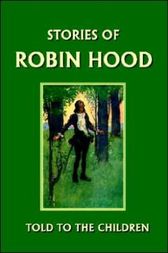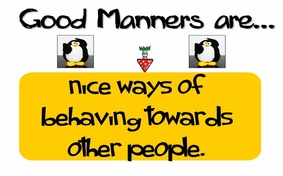Foundations of Philosophy (Ages 9-11) with Sally Zeiner In our discussion of Robin Hood today, students raised some very thoughtful questions. After making sure that students understood the stories we began by tackling the challenging question of the ethics of Robin Hood; was what he was doing right or wrong? When is it ethical to take something from someone else? This conversation led us to ask other questions. Do we have a responsibility to take care of people in need in our community? Would Robin Hood have helped the poor if he had not lost his family and his property? Should Robin Hood have asked the old woman to disguise herself as him? We also raised an interesting and surprising question; did Robin Hood have a greater obligation to help others because of his exceptional talent? Students should read Robin Hood, chapters VII and VIII, for next week, and prepare for our discussion by writing a brief description of each chapter, answering the following questions: Who are the main characters? What is the problem, main event, and resolution? We will review their answers to make sure that the students understand the story before we continue discussing the social and ethical questions raised. We are not looking for one right answer to any of these questions. We are working on the ability to state our thoughts clearly and listen to others with a willingness to take their ideas seriously -- very challenging and important skills. If it is difficult for your child to speak in a group, it may be helpful for them to write down their reactions to some of the questions we discussed this week. Philosophy for Children (Ages 12-14) with Rich Piscopo At the end of every class, students write down a summation of ideas drawn from our time together. I find writing to be an excellent way to crystallize the thoughts generated during class. And, when we read these writings aloud at the beginning of the next class, it serves as an excellent means of reviewing the material. I encourage our students to save these writings, for in their search of discovering who they are, the writings give an excellent sense of perspective. And, the writings are also very grounding. They give concrete examples to sometimes very abstract and elusive concepts. Of course, the saved writings also serve as a portfolio of the student's progress. I was very impressed with the writings generated from our last class about criteria. I was a little concerned that the concept was not assimilated, but my concerns were put to rest once the students read their writings. Everyone assimilated and applied the concept. In other words, they got it! We did some more review on criteria, just to cement the concept, then we moved on to the idea of manners. What are manners, anyway, and why were they invented? One student thoughtfully said that manners were rules for society. Another picked up on this idea and offered the thought that there might be "emotional manners". Upon encouraging her to fully develop her idea, we discussed that just as there are rules for outer behavior, perhaps there are rules for "inner" behavior -- our feelings. We decided that these "inner" rules are based on respect. Respect for our own feelings, and respect for other's feelings. We further discussed that manners are invented social conventions. Why should we follow them? A student answered that if we don't follow them, we are not accepted. And we decided that acceptance is a good thing, especially if you want to get into a college or get a job. For next week, we plan to discuss what value is. Similar to the idea of quality, what gives something value? Do we ascribe value to an object or idea, or is anything inherently valuable, i.e., is anything valuable "in and of itself"? For example, is the idea of freedom inherently valuable, or is it valuable because we ascribe value to it? We also plan to discuss the mental act of judging. What is involved when we make a judgment? Here is where our background on criteria comes into play. All judgments are based on criteria. Before we make a judgment, we take into account as many considerations as we can think of. Some considerations are more important than others. Some are, in fact, decisive. We call these decisive considerations criteria. On with the search! I look forward to our next class! Comments are closed.
|
Categories
All
Archives
May 2016
|

 RSS Feed
RSS Feed